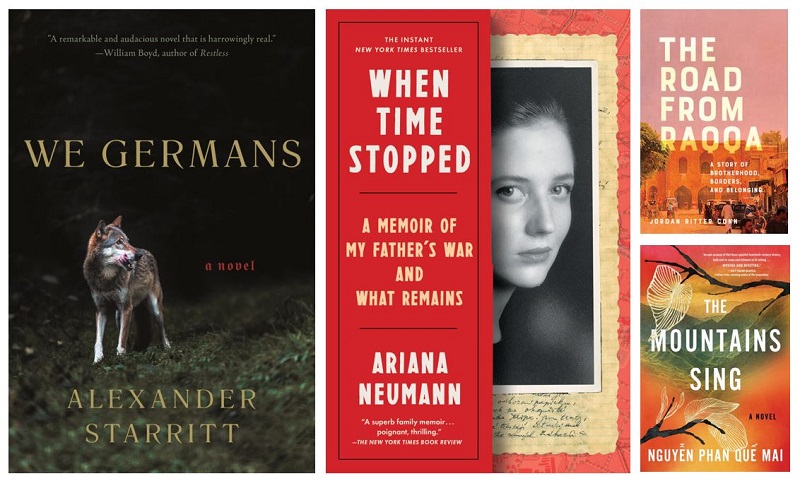Congratulations to Alexander Starritt on winning the 2021 Dayton Literary Peace Prize for his second novel, WE GERMANS.
The Dayton Literary Peace Prize, inaugurated in 2006, is the first and only annual U.S. literary award recognizing the power of the written word to promote peace. The Dayton Literary Peace Prize invites nominations in adult fiction and nonfiction books published within the past year that have led readers to a better understanding of other cultures, peoples, religions, and political points of view. Both awards carry a $10,000 cash prize.
"We Germans is an intense, short novel with an enormous impact, because it faces into the great unanswerable human conundrum: the persistence of evil, the very nature of it, and all the facets of helpless striving from which it can spring. A young British man has questioned his grandfather about what it was like being a German soldier in World War II. The grandfather, Meissner, refuses to talk about it. But after his death, a long letter is discovered in his effects, addressed to the young man. “My dear Callum,” it begins. And the story unfolds. One has the feeling, reading this book, that evil may be a sort of mental or spiritual strand of molecular structure, in our nature. Meissner talks of his life as a common soldier of the Third Reich, recalling the horrors of the Eastern Front in Russia, and then in the Gulag, as a prisoner of war. “I wasn’t a Nazi,” he says, “No court would find me guilty of anything, not even an omniscient one. What I want to tell you isn’t about atrocities or genocide. I didn’t see the camps and I’m not qualified to say anything about them. I read Primo Levi’s book about it, like everyone else. Except of course that when we Germans read it, we have to think: we did this.” He goes on to say that his letter is about courage, and gives as an example the story of a brother who is terminally ill, playing football on his crutches. But as he goes on, describing the terrible winter of 1944, as the German army dissolves in starvation and hypothermia and the attritions of combat, a portrait emerges of a man with blood on his hands, trying to explain to his grandson how it was, how it truly was. What one comes to, reading this fine novel, is a strange kind of revelation – how our great tragedy as a species may not be savagery, but a devastatingly two-edged facet of our being: our capacity for cooperation, for lining up and doing what is ordered, and the letter itself becomes what its fictional recipient calls a “conflicted inheritance.” This is a novel of great intelligence and eloquence, a fully realized portrait of the complex threads that make up a single human life in terrible times. — Richard Bausch, 2021 finalist judge
Find out more here.

